What is the Difference Between Can and Could
Summary: Difference Between Can and Could is that can expresses ability and is a modal verb. Sometimes can is used in the sense of May while Could is used to talk about ability that existed in the past.
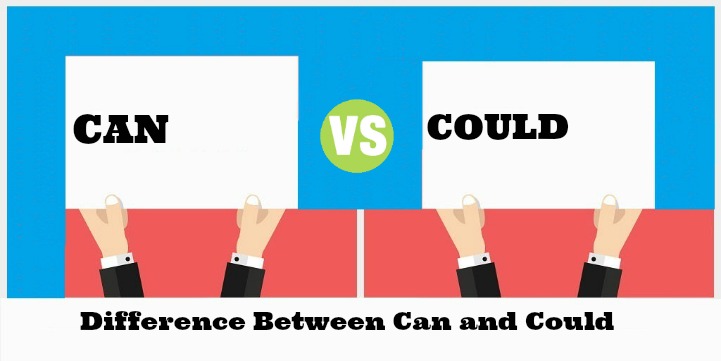
Can
Definition of Can
Can is a modal verb(those verbs that are used before ordinary verbs and explain possibility, necessity, certainty or permission).
- Can is used while planning or deciding about near future
- Can is used to state possibility
- Can is used to tell ability or skill
- Can is used to grant permission
- Can is used to tell way of doing something
- Can is used to tell the possession of power or right to do something
- Can is used to express doubt or surprise
- Can is used to make suggestions
- Can is used with the words like feel, smell, see, taste, hear etc.
Examples of Can
While planning or deciding about near Future
- He can go to doctor tomorrow.
To state Possibility
- Playground can be emptied in the morning.
To tell Ability or Skill
- I can solve both the questions (mental ability)
- I can lift both trunks (physical ability).
To grant Permission
- Can I be given this opportunity?
- Can I take this ring?
To tell way of doing Something
- He can write different stories in different languages.
To tell the possession of power or right to do Something
He can change anything according to his desires (right)
Parliament can amend women’s protection bill (power).
To express Doubt or Surprise
- What can he be eating?
- Can John be serious about resigning from job?
To make Suggestions
- I can wash the carpet if necessary
- I can take you to meet her, if necessary.
With the words like feel, smell, see, taste, hear etc.
- You can hear me now
- I can taste the food you are cooking for you friend.
Pronunciation of Can
/kən/ /kæn/
Etymology of Can
From can, first and third person singular of connen, cunnen, from cann, first and third person singular of cunnan, from *kunnaną, from *ǵn̥néh₃-.
Could
Definition of Could
Could is also a modal verb and is the past tense of can.
- Could is used as past tense of can
- Could is used to show politeness
- Could is used as a helping verb in the past
- Could is used to tell the probability or possibility
- Could is used with conditional possibility or ability
- Could is used to indicate suggestions
- Could is used while asking for permission
- Could is used to state awareness through senses
- Could is used to express emotions like anger, annoyed or infuriation.
Examples of Could
Used as past tense of Can
- Harry said he could come
- I couldn’t eat anymore because of food poisoning
To show Politeness
- Could you cook for us on weekend?
- Could you come to meet my sister?
As a helping verb in the Past
- My son could speak French at very young age
- Your daughter could cook at the age of 12.
To tell the Probability or Possibility
- You could have been injured badly
- You could top the exams.
Used with conditional Possibility or Ability
- If we could take him to hospital, we would
- You could get full marks if you worked very hard.
Used to indicate Suggestions
- You could take my umbrella, if it’s raining
- You could take my help, if you want
Used while asking for Permission
- Could I take your pencil?
- Could you lend me some money?
Used to state awareness through Senses
- I could see him walking down the street
- I could hear the music being played by DJ.
Used to express emotions like anger, annoyed or Infuriation
- How could he be rude?
- She could at least have informed us, that she broke the vase .
Pronunciation of Could
/kʊd/ /kəd/
Etymology of Could
From coude, couthe, cuthe, from Old English cūþe, past indicative and past subjunctive form of cunnan (compare related cūþ > English couth).
However, while the letter l was historically pronounced in the latter two, could never had an l sound in it.
Tips
Can and could are followed by infinitives without to.
- I can knit. (NOT I can to knit.)
- She could understand nothing. (NOT she could to understand nothing.)
Questions and negatives are made without do.
- Can he speak English? (NOT Does he can speak English?)
- He can’t speak English. (NOT He can doesn’t speak English.)
There is no -s in the third person singular.
- She can sing. (NOT she can sings.)
Can vs Could
CAN
Modal verb.
Definition
Can is used planning about near future, stating possibility, telling skill, granting permission, about way of doing something, about possession of power or right, expressing doubt or surprise, making suggestions, with words like feel, smell etc.
Dictionary Pronunciation
/kən/ /kæn/
Etymology
From can, first and third person singular of connen, cunnen, from cann, first and third person singular of cunnan, from *kunnana, from *gnneh3-.
Examples
He can go to doctor tomorrow
Playground can be emptied in the morning
I can solve both the questions (mental ability)
I can lift both trunks (physical ability)
Can I be given this opportunity? He can write different stories in different languages
He can change anything according to his desires (right)
Parliament can amend women’s protection bill (power)
What can he be eating?
I can wash the carpet if necessary
You can hear me now.
CAN
Modal verb.
Definition
Could is used as past tense of can, to show politeness, as a helping verb in the past, for telling the probability or possibility, with conditional possibility or ability, indicating suggestions, for asking for permission, to state awareness through senses, to express emotions.
Dictionary Pronunciation
/kʊd/ /kəd/
Etymology
From coude, couthe, cuthe, from Old English cupe, past indicative and past subjunctive form of cunnan ( compare related cup > English couth).
However, while the letter l was historically pronounced in the latter two, could never had an l sound in it.
Examples
I couldn’t eat anymore because of food poisoning
Could you come to meet my sister?
Your daughter could cook at the age of 12
You could top the exams
You could get full marks if you worked very hard
You could take my help, if you want
Could I take your pencil?
I could see him walking down the street
How could he be rude?

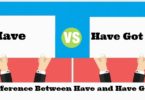
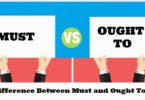
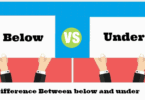


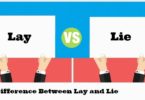
Leave a Comment
You must be logged in to post a comment.